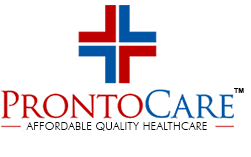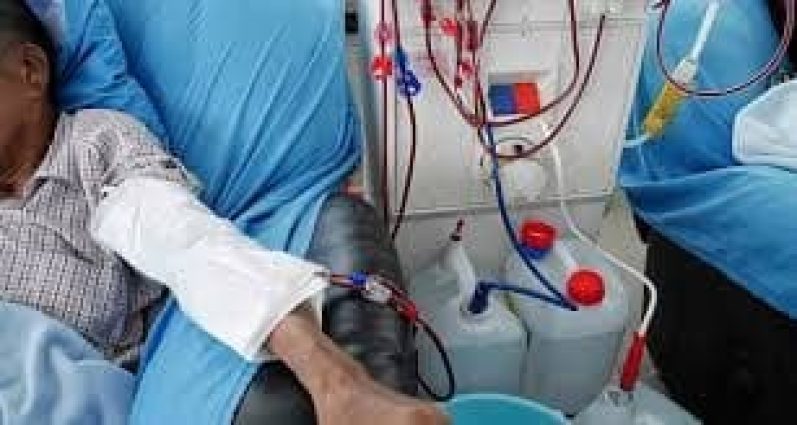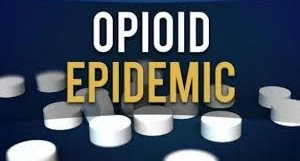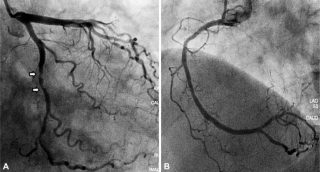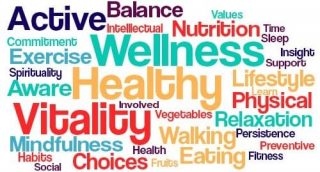Acute Kidney injury or AKI, costs about $90 billion dollars a year! It is associated with high mortality and progression into chronic kidney disease which may be treated with either dialysis or kidney transplant as limited options .Thus, the main focus would be to prevent acute kidney injury and have early detection to take appropriate management steps to avoid its progression into end-stage renal disease.
The proper approach will include review of all medications which are toxic to the kidneys with early identification of acute kidney injury which will be noted with early rise on the Serum Creatinine Level or SCr . This is noted mostly in the setting of acute hospitalization in the intensive care unit, post cardiac surgery in elderly patients. Having Electronic Health Record EHR will provide early detection of Acute Kidney Injury based on the changes in the level of SCr level weather in hospital or clinic setting. This enhances patient safety to improve clinical outcome.
Many studies showed e-Alerts to be helpful in detection of Acute Kidney Injury (AKI) to either stop or adjust dose of a toxic kidney medication. To avoid significant drop of blood pressure especially with serious infections (sepsis) or over medications of blood pressure pills. Successful clinical Algorithms have been established and proved useful in reducing the AKI by proper identifications of patients at risk and specific biomarkers measured. Elderly patients especially women with low SCr levels were more likely to benefit from the e-Alerts by stopping the nephrotoxic drugs early. AKI is defined as either an increase in the SCr by 0.3 mg/dl within 48 hours or increase in SCr to 1.5 times baseline which is known or presumed to have taken place over the past 7 days or urine volume less than 0.5 ml/kg/hour for 6 hours. A through clinical review of all medications including all herbal supplements and over-the counter medications. This is followed by a physical exam to assess fluid status in the body to detect evidence of congestive heart failure and evaluate left ventricular ejection fraction. Specific labs work includes electrolytes, complete blood count, urine analysis, blood urea nitrogen and SCr levels. Volume expansion with isotonic Saline is the standard of care to treat AKI. No evidence to show that colloids are superior to normal Saline infusion being careful to avoid fluid overload. Treating risk factors such as high blood pressure , diabetes and hyperlpipidemia are important in preventing kidney failure.
In cases of shock with low blood pressure, Intravenous medications to support maintain appropriate blood pressure level for perfusion of vital organs including the kidneys would include IV Norepinephrine or Vasopressin Nutritional factors include protein intake restrictions, use of parental nutrition and control of blood sugar levels are very important. Avoid dehydration by the use of diuretics in the setting of AKI, unless there is an evidence of volume overload. Intravenous Dopamine drips does not provide any benefit to prevent early AKI. Artificially Sweetened drinks and sodas were linked to higher kidney risk for damage especially in the setting of dehydration after exercise or prolonged fasting.
Aspartame is a toxic chemical added as an artificial sweetener with decades of evidence of its many toxic effects since 1970 causing cancers including Non-Hodgkin Lymphomas, multiple myeloma in men and leukemia in both men and women. Its adverse effects include weight gain, brain tumors,stroke, dementia,seizures migraine,hyperltriglyceridemia and diabetes and heart disease. Also liver damge and sperm damage causing impotence!
Consumption of more than two servings a day of artificially sweetened soda is associated with a 2-fold increased risk for kidney function damgae in women,” according to a 2011 study published in the Clinical Journal of American Society of Nephrology
Unfortunately, Aspartame is a toxic chemical as artificial sweeteners found in over 6000 products!In a recent article July 27th, 2019, in Food Navigator, it was suggested that the sale of Aspartame should be stopped.
There is high incidence of anemia with chronic renal failure mostly by decreased production of (Erythropoietin) which can be partially corrected with replacement therapy which would obviate the need for repeated blood transfusion as the goal is never to normalize the blood hemoglobin level in chronic kidney failure. Supplementing Iron orally if blood work shows iron deficiency. Iron only given via an Intravenous route if Mal-absorption exists to avoid unnecessary cost and potential complications such as nausea, vomiting, burning and swelling at the IV site.
Avoiding toxic drugs to the kidneys is critical to prevent AKI. These drugs include Non-steroidal anti-inflammatory drugs( NSAIDs) such as Aleve, Motrin and Advil for pain releif , Anti-fungal medications such as Amphotericin, Intravenous Dye contrast , Zometa used to treat osteoporosis, HIV medications such as Tenofovir and Atazanavir.
If all these steps are followed consistently, would save many of the AKI patients from progressing to chronic renal failure or end-stage kidney failure with only two costly options left being Dialysis or Kidney Transplant with so many potential complications such as repeated infections, chronic intake of immunosuppressive therapy to prevent rejection of the transplanted kidney!
